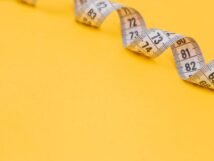Losing weight can be a challenging journey, but it is important to set realistic goals and understand the science behind weight loss. Many people have unrealistic expectations when it comes to shedding pounds, which can lead to disappointment and frustration. By setting achievable goals and understanding the basics of weight loss, you can increase your chances of success and create a sustainable plan for long-term weight management.
Key Takeaways
- Set realistic weight loss goals to avoid disappointment and frustration
- Understanding the science of weight loss can help you make informed decisions about your diet and exercise routine
- Calculate your daily calorie intake and expenditure to ensure you are in a calorie deficit for weight loss
- Choose a suitable diet plan that fits your lifestyle and preferences
- Incorporate exercise into your routine to boost weight loss and improve overall health
- Track your progress and make adjustments as needed to stay on track
- Plateaus and setbacks are normal, but don't give up - try new strategies to overcome them
- Stay motivated and consistent by finding a support system and focusing on the benefits of weight loss
- Seek professional guidance and support if needed, such as from a registered dietitian or personal trainer
- Maintaining weight loss and preventing relapse requires ongoing effort and lifestyle changes.
Setting Realistic Weight Loss Goals
Setting realistic weight loss goals is crucial for success. It is important to remember that weight loss is not a linear process and that everyone's journey is unique. Avoid setting unrealistic expectations, such as losing a large amount of weight in a short period of time. Instead, focus on making small, sustainable changes that will lead to gradual weight loss over time.
One way to set realistic goals is to aim for a weight loss of 1-2 pounds per week. This is considered a healthy and achievable rate of weight loss. It is also important to focus on non-scale victories, such as improved energy levels, increased strength, and better overall health. By shifting your focus away from the number on the scale, you can stay motivated and celebrate your progress along the way.
Understanding the Science of Weight Loss
To effectively lose weight, it is important to understand the science behind it. Weight loss occurs when you consume fewer calories than you burn. This creates a calorie deficit, which forces your body to use stored fat for energy. It is important to note that not all calories are created equal. The quality of the calories you consume plays a role in weight loss as well.
Metabolism also plays a role in weight loss. Your metabolism is the process by which your body converts food into energy. Some people have faster metabolisms than others, which means they burn calories more quickly. However, there are ways to boost your metabolism through exercise and building lean muscle mass.
Calculating Daily Calorie Intake and Expenditure
To effectively lose weight, it is important to calculate your daily calorie needs and track your calorie intake and expenditure. There are several online calculators that can help you determine your daily calorie needs based on factors such as age, gender, weight, height, and activity level.
Once you have calculated your daily calorie needs, it is important to track your calorie intake and expenditure. This can be done through food journaling or by using a smartphone app or wearable device. By tracking your calories, you can ensure that you are staying within your daily calorie goals and making progress towards your weight loss goals.
Choosing a Suitable Diet Plan
There are many different types of diets out there, and it is important to choose a plan that works for you. Some popular diet plans include the ketogenic diet, the Mediterranean diet, and the paleo diet. It is important to choose a plan that is sustainable and fits into your lifestyle.
When choosing a diet plan, it is important to focus on whole, nutrient-dense foods. These foods are rich in vitamins, minerals, and fiber, which can help keep you feeling full and satisfied. It is also important to listen to your body and eat when you are hungry, rather than following strict meal times or portion sizes.
Incorporating Exercise into Your Routine

Exercise is an important component of weight loss. Not only does it burn calories, but it also helps build lean muscle mass, which can boost your metabolism. Aim for at least 150 minutes of moderate-intensity aerobic activity per week, along with strength training exercises at least two days per week.
Incorporating exercise into your routine doesn't have to be complicated. Find activities that you enjoy and make them a regular part of your day. This could be walking, jogging, swimming, cycling, or participating in group fitness classes. The key is to find something that you enjoy and can stick with long-term.
Tracking Progress and Making Adjustments
Tracking your progress is important for staying on track with your weight loss goals. This can be done through regular weigh-ins, measurements, or progress photos. By tracking your progress, you can see how far you have come and make adjustments as needed.
If you find that you are not making progress towards your weight loss goals, it may be time to make some adjustments. This could include increasing your exercise intensity or duration, adjusting your calorie intake, or seeking professional guidance. It is important to remember that weight loss is not always linear and that plateaus are a normal part of the process.
Dealing with Plateaus and Setbacks
Plateaus and setbacks are common during the weight loss journey. It is important to stay motivated and not get discouraged. One way to overcome plateaus is to change up your exercise routine or try a new type of workout. This can help shock your body and jumpstart your metabolism.
If you experience a setback, such as a binge eating episode or a missed workout, it is important to forgive yourself and move on. One setback does not define your entire journey. Instead of dwelling on the setback, focus on getting back on track and making healthier choices moving forward.
Staying Motivated and Consistent
Staying motivated and consistent is key to achieving your weight loss goals. One way to stay motivated is to set small, achievable goals along the way. Celebrate each milestone and reward yourself for your hard work. It is also important to surround yourself with a supportive network of friends and family who can cheer you on and hold you accountable.
Consistency is also important for long-term success. Create a routine that works for you and stick with it. This could include scheduling regular workouts, meal prepping, or finding healthy alternatives to your favorite foods. By creating healthy habits and sticking with them, you can increase your chances of maintaining your weight loss long-term.
Seeking Professional Guidance and Support
If you are struggling to lose weight on your own, it may be beneficial to seek professional guidance and support. Working with a registered dietitian or personal trainer can provide you with the knowledge and tools you need to succeed. They can help create a personalized plan that fits your individual needs and goals.
In addition to professional guidance, it is important to seek support from friends, family, or a support group. Having a support system can provide encouragement, accountability, and motivation. It is also helpful to share your goals and progress with others who are on a similar journey.
Maintaining Weight Loss and Preventing Relapse
Once you have achieved your weight loss goals, it is important to focus on maintaining your weight loss and preventing relapse. This can be done by setting new goals, such as maintaining your current weight or building muscle mass. It is also important to continue practicing healthy habits, such as regular exercise and balanced eating.
Preventing relapse is also important for long-term success. This can be done by identifying triggers or situations that may lead to overeating or unhealthy habits. By recognizing these triggers, you can develop strategies to cope with them in a healthy way.
Losing weight is a journey that requires setting realistic goals and understanding the science behind weight loss. By setting achievable goals, understanding the basics of weight loss, and incorporating healthy habits into your routine, you can increase your chances of success. Remember to stay motivated, seek support when needed, and celebrate your progress along the way. With dedication and consistency, you can achieve your weight loss goals and maintain a healthy lifestyle for years to come.
If you're interested in martial arts and looking to empower yourself through physical activity, you might find this article on "Empowering Women Through Martial Arts: A Journey of Strength and Confidence" intriguing. It explores how martial arts can help women build physical strength, boost self-confidence, and develop essential self-defense skills. Whether you're a beginner or an experienced practitioner, this article offers valuable insights into the transformative power of martial arts. Check it out here!
FAQs
How much weight can you lose in a week?
The recommended safe weight loss rate is 1-2 pounds per week. Losing more than that can be unhealthy and unsustainable.
How many calories should you cut to lose 50 pounds?
To lose 1 pound, you need to create a calorie deficit of 3,500 calories. To lose 50 pounds, you need to create a calorie deficit of 175,000 calories. This can be achieved by cutting 500-1,000 calories per day.
How long would it take to lose 50 pounds by cutting calories?
If you cut 500-1,000 calories per day, it would take approximately 35-70 weeks (8-16 months) to lose 50 pounds.
How long would it take to lose 50 pounds by exercising?
The amount of time it takes to lose 50 pounds through exercise depends on the intensity and duration of the exercise. On average, it would take approximately 6-12 months to lose 50 pounds through exercise alone.
What is the best way to lose 50 pounds?
The best way to lose 50 pounds is through a combination of healthy eating and regular exercise. This approach is sustainable and promotes long-term weight loss and overall health. It is also important to consult with a healthcare professional before starting any weight loss program.














